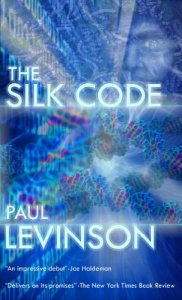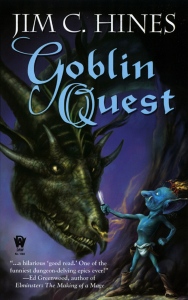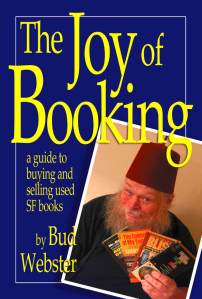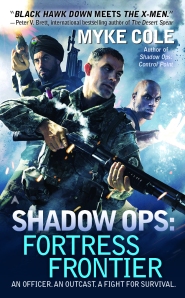MICHAEL A. VENTRELLA: I’m pleased to be interviewing award-winning author Nancy Springer, a lifelong professional fiction writer who has published sixty novels in genres including mythic fantasy, contemporary fiction, magical realism, and mystery — but her most popular works, no contest, are a series of short novels about Enola Holmes, Sherlock Holmes’ younger sister. The movie “Enola Holmes,” released by Netflix in 2020, has become a blockbuster, and its recently released sequel, “Enola Holmes 2” promises to be the same.
Nancy, you’ve been writing mysteries and adventures for a while before the Enola Holmes series began. What inspired the series?
NANCY SPRINGER: The answer is disappointingly mundane: an editor I worked with phoned me and suggested that, for our next project, he would like something set in “darkest London at the time of Jack the Ripper.” I thought he was bonkers, but I knew where my bread and butter came from. So I thought, and thought, and eventually it occurred to me that Sherlock Holmes lived, fictitiously, at about that time. After doing some research to confirm that my sense of date was correct, gotcha! I would write a series much like my Rowan Hood books, except Enola would be the hero’s little sister, not his daughter. I knew her name, Enola, instantly. It just sounded and felt right.
VENTRELLA: As a co-editor (with Jonathan Maberry) of two anthologies of alternate Sherlock stories, I am clearly a Sherlock fan. What was it about Sherlock that got you interested? Have you heard from other Sherlock fans who are either pleased or upset with your version?
SPRINGER: Please say hi to Jonathan Maberry for me!
I have been reading Sherlock Holmes since I was a little kid: my mother had a complete set of Conan Doyle, and I cherish it still. I have heard from many, many people who love my version, although I have no idea whether they were Sherlock fans. I did hear from one grumpy man who accused me of succeeding as a writer by riding on Conan Doyle’s coattails. Well, I’d respond to that by reminding him I was a successful writer long before I wrote Enola Holmes.
VENTRELLA: I’ve read all eight Enola books, and I notice how well researched they are concerning life in England at the time, and specifically the rules and morals young ladies are forced to follow. How did you do your research and did you vary from the actual era at any time for the plot to work?
SPRINGER: I don’t think I ever committed anachronism, or if I did, it was by mistake. I depicted the late Victorian era in London as exactly as I could.
I did my research in all the conventional ways: reading, computer searches, watching classic movies about Sherlock Holmes, visiting antique shops — at one of which I was fortunate enough to examine a whalebone corset – but also in some unconventional ways. I ordered very grown-up coloring books about Victorian costume, Victorian houses, horse-drawn carriages, that sort of thing, and I colored them. In detail. For me, there is no better way to internalize information than by coloring. I photocopied from a costume book and colored those images, too. I ordered paper dolls of a Victorian family, and played with them. I found a venerable ledger to be my Enola Holmes “bible,” but I also used it to scrapbook my research – notes, stickers, pictures. I immersed myself in research for months before starting the first novel, then alongside writing the books for years – I don’t know how many years, because I don’t keep track of how long I work on anything.
VENTRELLA: So let’s talk about the films. How did that arrangement come about?
SPRINGER: Mysteriously, and mostly beyond my ken. My literary agent says that it started when she got a phone call from Millie Bobby Brown’s father, although she didn’t tell me this until years later. Apparently, Millie had read the Enola Holmes books and wanted to make a movie based on them. This would have been when she was in her early teens. I have no idea of how the arrangements were managed after that, but when I found out that I had a contract, and about MBB’s part in it, I just glowed, because most of my writing had been for teens, and now a teen had given back to me in a big way. This still amazes me.
VENTRELLA: Did you have any say in the filmmaking process?
SPRINGER: I played a minor part as a consultant. I saw the scripts and made suggestions that were not always listened to, but sometimes were.
VENTRELLA: So many authors are upset with the film versions of their books, but I know you’re pleased with these (after all, they’re done wonderfully). Any complaints?
SPRINGER: Just comments, not complaints. I wish they hadn’t dressed Enola as a boy; that is such a cliché. I wish they had dressed her as a lady with weapons concealed in her corset. And in the second movie, I think Enola’s mother gives her clues that Enola could have and should have figured out on her own; she’s quite bright, you know.
VENTRELLA: Not counting your Sherlock, who is your favorite filmed Sherlock?
SPRINGER: Jeremy Brett! No contest.
VENTRELLA: What is your writing process? Do you outline heavily or just jump right in, for instance?
SPRINGER: Neither. I don’t outline; I tried it once, and found I couldn’t write the book; all my energy had gone into the outline. So I often begin to write without knowing where the book is going. But I don’t just jump in. I wait until I have a very clear idea of the exact right way to start the book, in what place and what scene, with what words. For me, getting this right, starting in the right place with the right scene, the right words, is critical to how the book turns out. Those first few pages generate the energy that the rest of the work depends on.
VENTRELLA: Do you find yourself creating a plot first, a character first, or a setting first? What gets your story idea going?
SPRINGER: I suppose setting has to come first, because I need to know where my characters live. But setting is not a big deal to me; it’s just the matrix, like the canvas beneath a painting. From page one, it’s all about characters. The plot develops from what the characters do.
VENTRELLA: How did you get started? What was your first story or book published?
SPRINGER: I started writing in 1972, because the daydreams crowding my head needed to be let out, and I wrote a 500-page novel. After a whole lot of shortening, editing, and revision, THE BOOK OF SUNS was published in 1977, but don’t go looking for it to buy it. It’s so amateur that it embarrasses me. However, after a huge overhaul, it was eventually published again in 1980, retitled THE SILVER SUN. That book I can be proud of.
VENTRELLA: What makes your fiction unique? In other words, what is it about your stories that makes them stand out against all the other similar stories out there?
SPRINGER: I think it’s that “voice” thing. A friend of mine told me that, when they listened to my books on audio during their commute, it was as if I were sitting in the passenger seat talking to them. My erstwhile husband told me he read my books when I was away, because it made him feel I was there. Other readers have told me similar things, that reading my work makes them feel as if they know me. I am a quirky, peculiar person, with slantwise views of things, a strong voice, and good writing skills; I think the combination is what makes my fiction unique.
VENTRELLA: Any other news you can share? Will there be a 3rd film? A 9th book? A TV series? Any of your other books being considered?
SPRINGER: If any of these things were happening, I wouldn’t be aware of it. Negotiations might be going on, but if deals fell through, I would never know.
VENTRELLA: How much of writing is innate? In other words, do you believe there are just some people who are born storytellers but simply need to learn technique? Or can anyone become a good writer?
SPRINGER: I’m going to answer this question obliquely by telling about something that happens when I teach classes on writing: students are usually anxious to “find their voice.” I tell them that voice is just personality on paper. I tell them to let their personality flow out of their head, down their arms, and out through their fingers, onto the paper – or, I guess, the keypad? Anyway, some are able to do this, so they could become terrific writers, right?
Nope. Sometimes students who have really and truly found their voice are just plain dull, because that’s the way they are, personally.
But if a writer doesn’t find their voice, then how can readers relate?
So, no, I don’t think everyone can become a good writer.
VENTRELLA: What’s your opinion on self-publishing?
SPRINGER: I think it could be disastrous to the future of literature. A half century ago, when I started writing, the editors were strict and the literary agents picky; these were the gatekeepers . The average “apprenticeship” between when a person began writing fiction and when they finally earned substantial money was ten years. You had to be good to get published. Yes, some bad books slipped through, but overall a high standard was upheld. Many, if not most, published writers aspired to literary greatness.
Compare that to now, when many, if not most, seem to aspire only to quick, sloppy publication.
I have read self-published fiction that was dreadful. And I have read self-published fiction that would have been good if it were not for novice mistakes that made it barely readable, but would have been caught during a corrective process of learning the craft. Nothing that I have read makes me respect self-publishing.
VENTRELLA: What’s the worst piece of writing advice you ever got?
SPRINGER: My former literary agent told me I should keep on writing fantasy if I wanted to succeed.
VENTRELLA: What’s the best piece of writing advice you ever got?
SPRINGER: I can’t think of any good advice about the business, but there’s this: you know how the music swells at the emotional moments in a movie? My first editor coached me to do something like that in my novel by polishing and lengthening the best parts, giving the reader more time to savor while reading them.
VENTRELLA: What advice would you give to a starting writer that you wish someone had given to you?
SPRINGER: Don’t piss off an editor. Remember, they might serve on an awards committee.
VENTRELLA: What are the pros and cons of being a full-time professional fiction writer?
SPRINGER: Cons: you are lonely, with no co-workers or workaday social contacts. You find that only a very few people in your life understand or care about what you do. You make little money, you have no health insurance so you have to pay full price for doctor visits and prescription medicine. Your income tax payment is even more ridiculous than most people’s, because you don’t have an employer to pay part of your social security.
Pros: you don’t have to punch a time card or dress in work clothes. You can stay in your pajamas all day if you want to. You have a perfect excuse for getting out of anything you don’t want to do: “Must write, the deadline’s tomorrow.” Moreover, you actually love your work. You have the pleasure of perfecting your craft. You get to live in dreamland much of the time. You have the marvelous job of turning trauma into beauty.
Filed under: writing | Tagged: Enola Holmes, Nancy Springer, outlines, self-publishing, writing advice | Leave a comment »







 He’s appeared on CNN, MSNBC, Fox News, the Discovery Channel, National Geographic, the History Channel, NPR, and numerous TV and radio programs. He was President of the Science Fiction and Fantasy Writers of America from 1998 to 2001. His web page is
He’s appeared on CNN, MSNBC, Fox News, the Discovery Channel, National Geographic, the History Channel, NPR, and numerous TV and radio programs. He was President of the Science Fiction and Fantasy Writers of America from 1998 to 2001. His web page is  Frankly, I think it’s lame to put in discussion questions at the end of a novel which was certainly not intended as a textbook. On the other hand, it has been used as required reading in a few courses over the years, and I’m certainly very happy and grateful for that. I am especially glad, by the way, that I was able to able to write from the perspective of a female hero – Sierra Waters – it was fun writing from the point of view of a gender that’s not you, and I hope I got it mostly right.
Frankly, I think it’s lame to put in discussion questions at the end of a novel which was certainly not intended as a textbook. On the other hand, it has been used as required reading in a few courses over the years, and I’m certainly very happy and grateful for that. I am especially glad, by the way, that I was able to able to write from the perspective of a female hero – Sierra Waters – it was fun writing from the point of view of a gender that’s not you, and I hope I got it mostly right.









































